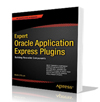Admission
• Java technology developers, designers, and architects who want to develop mobile applications for the MIDP
• Architects who design mobile technology solutions, and Java migration technologists, who need to leverage existing code to the new platform
Oracle Wireless Mobile Component Development
| Exam # |
Duration |
Language |
Level |
Type |
Classroom |
Code |
Fees |
|
-- |
24 |
English |
Professional |
Course |
Classroom |
Cs416 |
0 LE |
Description :
The Developing Mobile Phone Applications With J2ME Technology course provides students with hands-on experience with developing mobile applications on the Java 2 Platform, Micro Edition (J2ME platform) using Connected, Limited Device Configuration (CLDC) and the Mobile Interface Device Profile (MIDP). The course provides information about MIDP 1.0 and MIDP 2.0 specifications, concepts, and capabilities.
Objectives :
-
Explain the J2ME platform architecture and the role of configurations and profiles
-
Build basic MIDP applications (MIDlets) and incorporate enhanced multi-media into MIDP-based applications
-
Create and implement event-driven user interfaces using the high-level and low-level application programming interface (API)
-
Implement local data storage on devices using the Record Management System (RMS)
-
Create applications that use network-based information
-
Describe the MIDP 2.0 security enhancements
Topics :
Overview of the J2ME Architecture
-
Describe J2ME Architecture
-
Run the J2ME Wireless Toolkit demonstrations
Building and Executing MIDP Applications
-
Define the MIDP 2.0 application environment
-
Define the MIDP development process
-
Write and build a MIDP application (MIDlet)
-
Interrogate the device to verify that it can run the new MIDlet
Creating a High-Level User Interface
-
Describe the MIDP user interface (UI) architecture and the MIDP high-level UI API
-
Describe the Display object
-
Define the Item class and subclass components
-
Implement high-level item event handling
-
Display a message on the MIDlet screen
-
Handle user input through item state changes
-
Verify form data using a Command object
-
Implement the menu system
Creating a Low-Level User Interface
-
Describe the MIDP low-level UI API
-
Describe the low-level UI event handling
-
Handle pointer events
-
Create and implement a splash screen using the Canvas class
-
Implement a skip option on the splash screen
Enhanced High and Low-Level Interfaces
-
Describe the CustomItem abstract class
-
Describe CustomItem class event handling
-
Describe the javax.microedition.lcdui.game package
-
Create a form and add CustomItem, TextBox, and Gauge objects to download a game
-
Create the StarShip Battle 2004 game
Managing Data on the Device
-
Define data persistence and the RMS package in the MIDP
-
Access RecordStore objects on the device object
-
Store and retrieve data in a RecordStore object
-
Describe the RecordEnumeration interface
-
List RecordStore objects
-
Share a RecordStore object between MIDlet suites
-
Implement an option screen, and save and retrieve the data in the RecordStore object
Accessing Network Data and Services
-
Access data with the Generic Connection Framework (GCF) interface
-
Exchange Data over Hypertext Transfer Protocol (HTTP)
-
Use the HttpConnection interface to retrieve text for an application help screen
-
Describe media control in the MIDP
-
Describe the Mobile Media API (MMAPI) class hierarchy and interfaces
-
Add sound to the StarShip Battle 2004 game
MIDP Security
-
Describe the MIDlet security model and define three MIDP security concerns
-
Describe the MIDP Push technology
-
Create a certificate
-
Authenticate a MIDlet suite
-
Create a MIDlet that handles static Push connections
-
Create a MIDlet that handles dynamic Push connections
Over-the-Air Provisioning
-
Download J2ME applications
-
Describe application deployment
-
Provision MIDP 2.0 applications
Recommended Knowledge :
R: Be able to create applications using the Java 2 Platform, Standard Edition (J2SE platform) S: Passed the Sun Java 2 Programmers Certification Exam or have more than two years Java software development experience S: Have reviewed the CLDC and MIDP documentation that is located on the http://java.sun.com/j2me/docs/ web site
Recommended Course(s) :
OCP: Oracle Certified Professional, Java SE 7 Programmer
Training Materials :
Oracle Press
Labs :
This course includes several labs to ensure you will gain the targeted skills and experience.
Credential :
This course is a credit towards OCP: Oracle Certified Professional, Java ME 1 Mobile Application Developer
Category :
Programming
The Instructor:
